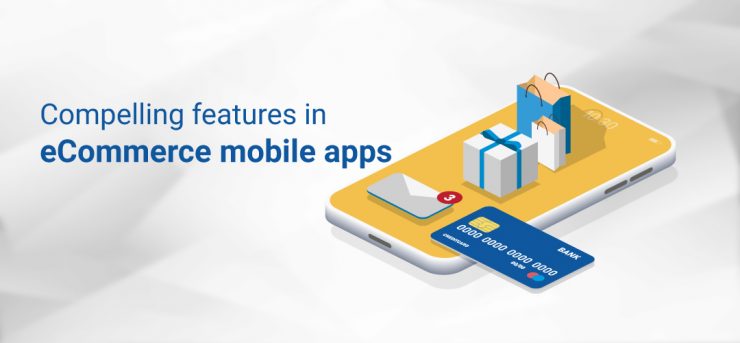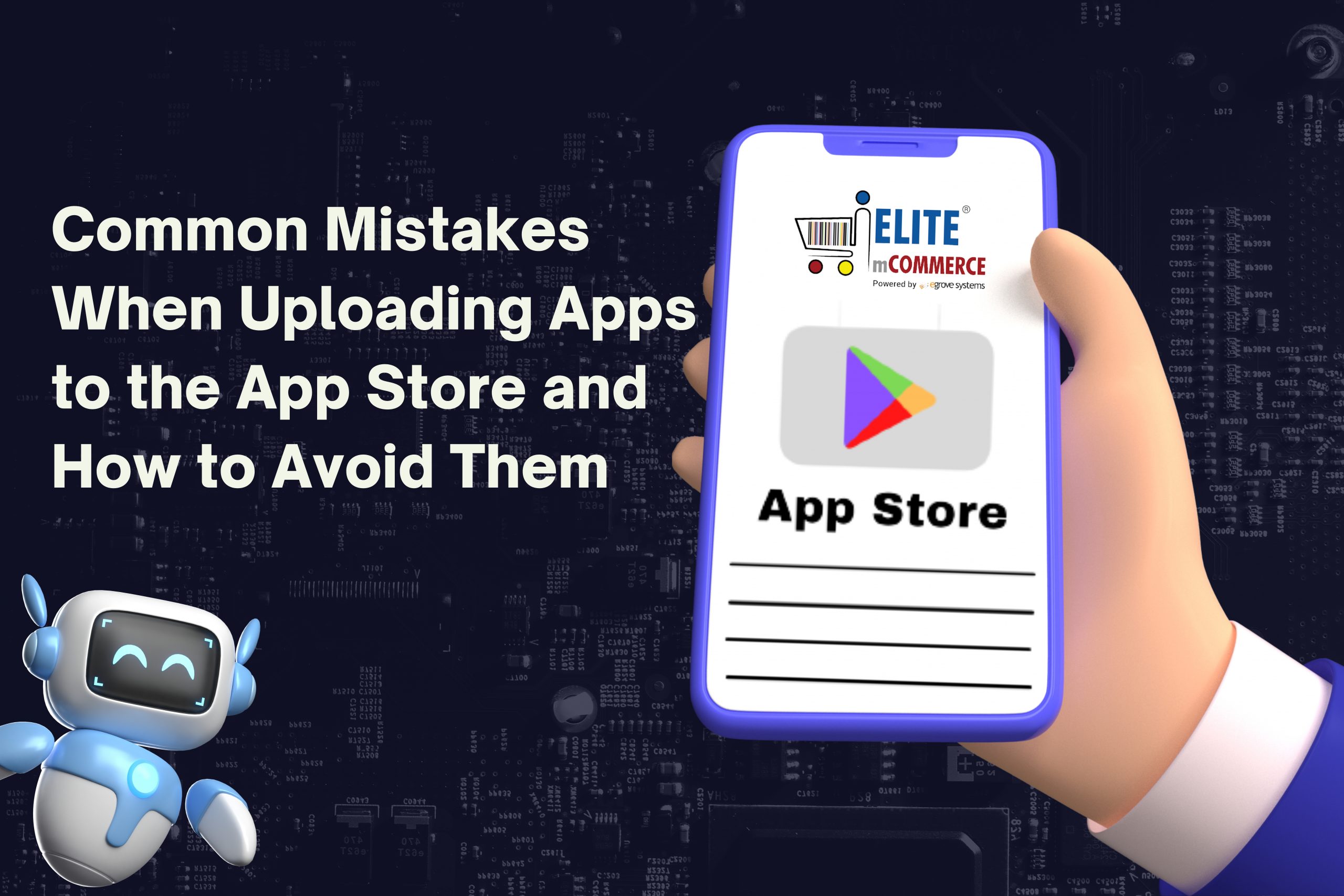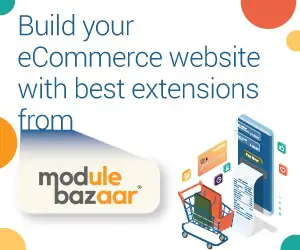Large e-commerce companies are now focused on improving the end-user experience on the E-Commerce mobile app, delivering a powerful technology infrastructure through the cutting-edge mobile app. The mobile business accounts for 34% of global e-commerce transactions. In addition, 85% of consumers now prefer mobile apps rather than mobile sites. Obviously, there are many opportunities here. The biggest challenge for any e-commerce business is to stand out from the competition with a stunning interactive app that attracts and retains buyers at all levels.
Here are some compelling features!
1. Simple Registration and Instant Information at Fingertips
Most consumers don’t like to fill out a long-term registry or force a social login to register. There are many mobile apps that can ask a lot of information in advance for you to sign up. People rarely like this kind of application. Amazon, the world’s largest e-commerce brand has remained simple from registration to checkout. The mobile app takes the user directly to the main page and does not need to register until the checkout. In addition, they offer simple registration- registration using email ID or mobile number. At checkout, the app also provides the option to save user information for future use or reference. This is an important feature that allows your users to connect and let them complete the checkout process.
Read Also: Keep Touch with your Customers through Mobile eCommerce
2. Make On-boarding as Simple as Pie
For any mobile application, getting users seamlessly is one of the most important components. Simple design, intuitiveness, and personalization make boarding as simple as possible. Your app should welcome your users with the philosophy of your brand and then showcase a range of interactive features. Keep your design simple and clear so your users won’t be delayed. From registration and registration to checkout and online payment, everything should be simplified and very simple.
3. Log in via Social Media
Users should be allowed to log in to their mobile apps via Facebook, Gmail or any other social media. Users should be given the option to retrieve their password or username and remind them of the social networking platform they use to set up the app. It also allows users to easily register and log in. The integration of social media is critical to the application because it can share application offers and achievements on other social media platforms.
4. Customization
Every e-commerce mobile app should provide a great user experience for e-commerce business. For example, in the case of a shopping application, the user should have perfect navigation and smooth experience so that there is no complexity during the shopping.
Therefore, it is important to maintain an interactive and compelling user experience with the necessary customizable features that support user preferences and needs.
5. Loading Speed
Speed has become the meaning of world life, constantly changing. Slowly loaded apps can be a terrible crash for those targeting large businesses. Ensure that all application content is optimized to meet the standards of the underlying device environment and that users do not spend more than three seconds. Technically, native applications built for dedicated platforms provide fast performance for all the functions and elements involved.
Read Also: Optimizing Advantages Of Ecommerce Apps for Any Business
6. Intuitive Design
The design of the e-commerce mobile app plays a key role in how the buyer behaves in your application. At least 8 seconds of attention, your users should be able to easily understand the application interface. Creating a very complex design with lots of animation and text, hoping to attract users, will always be counterproductive. Speaking of the user interface, succinct is a viable approach. This will enhance the user experience due to its ease of use.
7. High-Quality Images
In this feature of e-commerce mobile app, your image will convey your brand and product. One common mistake here is that people tend to save the cost of professional photographers. Taking product images from mobile devices or using low quality or stock images can damage the company’s image. Make sure your value is well communicated through the image.
8. Simple and Organized Navigation
One of the important things to consider when building an e-commerce mobile app is content and screen size. Due to the limited space available on mobile displays, it’s important to make sure your app and its content don’t appear on your device. Therefore, designing a simple and clean layout is essential. It should provide seamless navigation and showcase your brand or product in the most impressive way. Responsive design is the best solution to automatically adapt to any screen size and resolution and present an immersive experience.
9. Featured Product
Offering the latest trending products and discount offers through live sliders and banners have become a hallmark of successful e-c
E-Commerce applications. Make your landing page more influential by showing popular products. The first element users notice when they enter your e-commerce app. It also helps you track customers who explore the options displayed on the slider.
10. Easy Search and Filtering
When searching for thousands of products on a website, it’s critical to give users a variety of search options, filters, and the ability to easily find and explore offers. Despite this, 72% of the sites failed to meet the expectations of e-commerce site search. Shining this category is a great way to build a great customer experience.
11. Advanced Search Option
Typically, e-commerce applications list thousands of products in hundreds of categories. To allow customers to quickly and easily find the products they like; the app must provide advanced search options and precise filters. This way, even new visitors can quickly reach the desired product without much trouble. Implementing a barcode search is also a great way to help users access products directly by scanning code.
12. Multi-currency payment options
The Mobile app should provide multiple payment methods at checkout for maximum safety and security. Popular payment methods are cash on delivery, credit/debit card systems, smart cards, e-wallets, online banking, mobile payments, PayPal and Paytm. Modern e-commerce applications also support a variety of international currencies, including US Dollars, British Pounds, Euros, AEDs, YENs, INRs, etc., to target global customers.
13. Security
For e-commerce mobile apps, you need a lot of information from users. Information should be bank account details, credit/debit card information, addresses, and more. There is no doubt that you must ensure that your application is secure. You can’t simply ask for such personal information and leave it to hackers. Keep an eye on the security level of your application and make sure there are no vulnerabilities.
14. Stability and Credibility
Although not the feature itself, e-commerce mobile apps need to stabilize and guide customers through the purchase without any failure. Applications that freeze or fail to process any order during the payment period are useless. More importantly, unstable and unreliable applications can damage the brand’s reputation.
15. Building lists and Wishlists
Users may wait for a discount or have no money to purchase at a time. But they may want to save a product so that it’s easier to search in the future. This is the focus of building a Wishlist in the mobile app. Some applications that are specially offered by permanent retailers support building multiple wish lists.
16. Easy to Use
To attract and retain customers, you should remember that they want to get everything quickly and easily. Your e-commerce mobile apps should offer them a clear search and all key groups, filters, and features and should discard any confusing steps that make them incredible to make purchases. Investigate user behavior and eliminate any difficulties they may encounter. Keep in mind that even loyal consumers may just remove the app from their smartphone if it adds a problem instead of providing a solution and help. Simplicity is the key to making your e-commerce application popular and widely used.
17. Push Notifications
This feature of e-commerce mobile apps can be the most effective and easiest way to get users back to your store. With the help of push notifications, you can make certain promotions for new arrivals or discounts for products stored in your shopping cart.
Users can be inspired by this notification, which requires immediate action. This feature can be compiled with analytics to immediately increase sales. This notification system gets more responses from users than emails or text messages.
18. Feedback System
Users should be able to provide feedback about your app as it is critical to your business. It should be made in such a way that users can report any type of problem in the system, such as an error, or can provide comments about your product.This will give you an idea of the improvements your products and applications require. User feedback can help improve the application soon.
Read Also: 4 Best Mobile Apps of Elite mCommerce
Conclusion
The above-mentioned functions of e-commerce mobile apps are the key to improving the customer experience, thereby promoting the success of the online business. Your app should reflect these functional elements to make the journey seamless, attractive and enjoyable.









Add comment